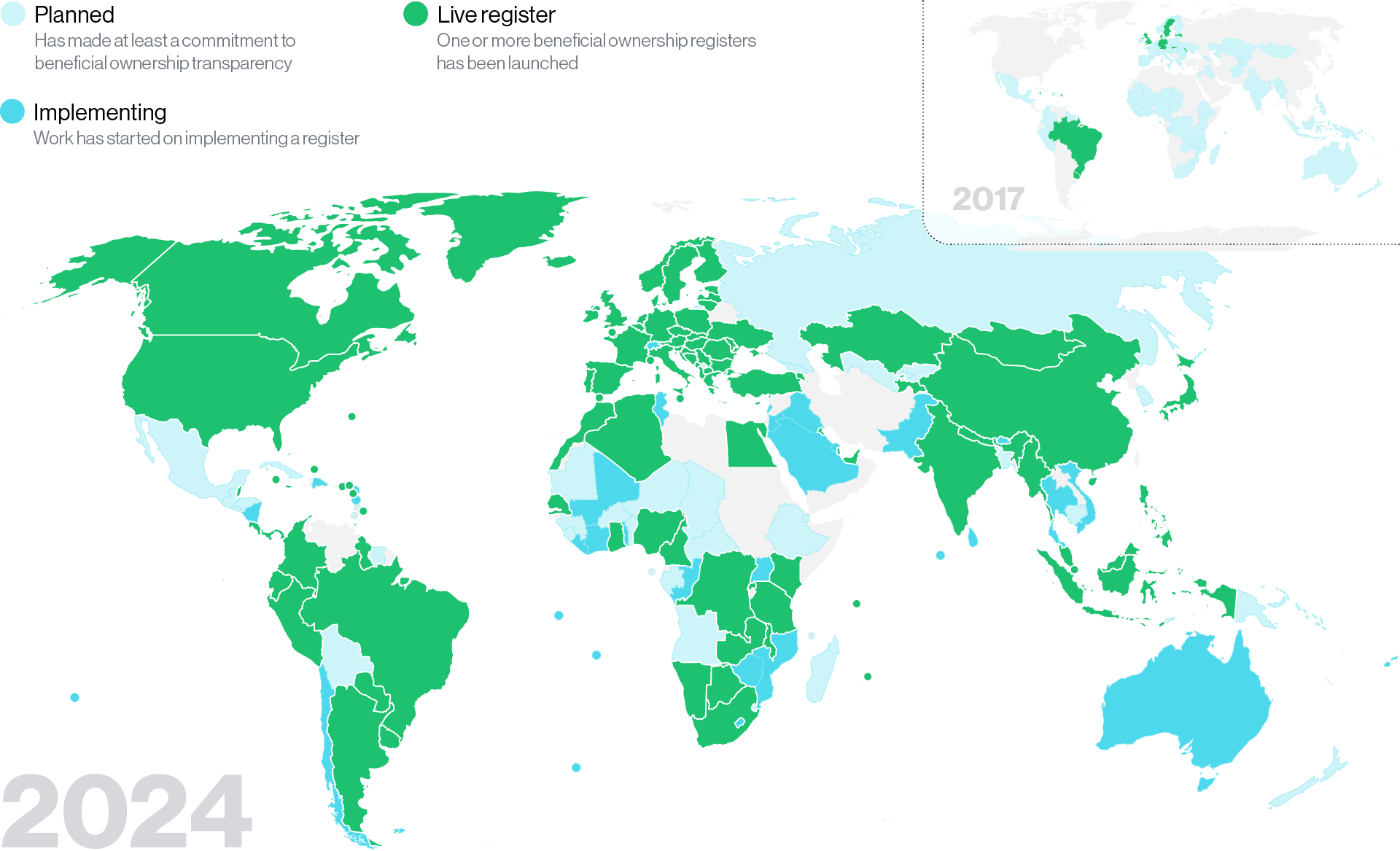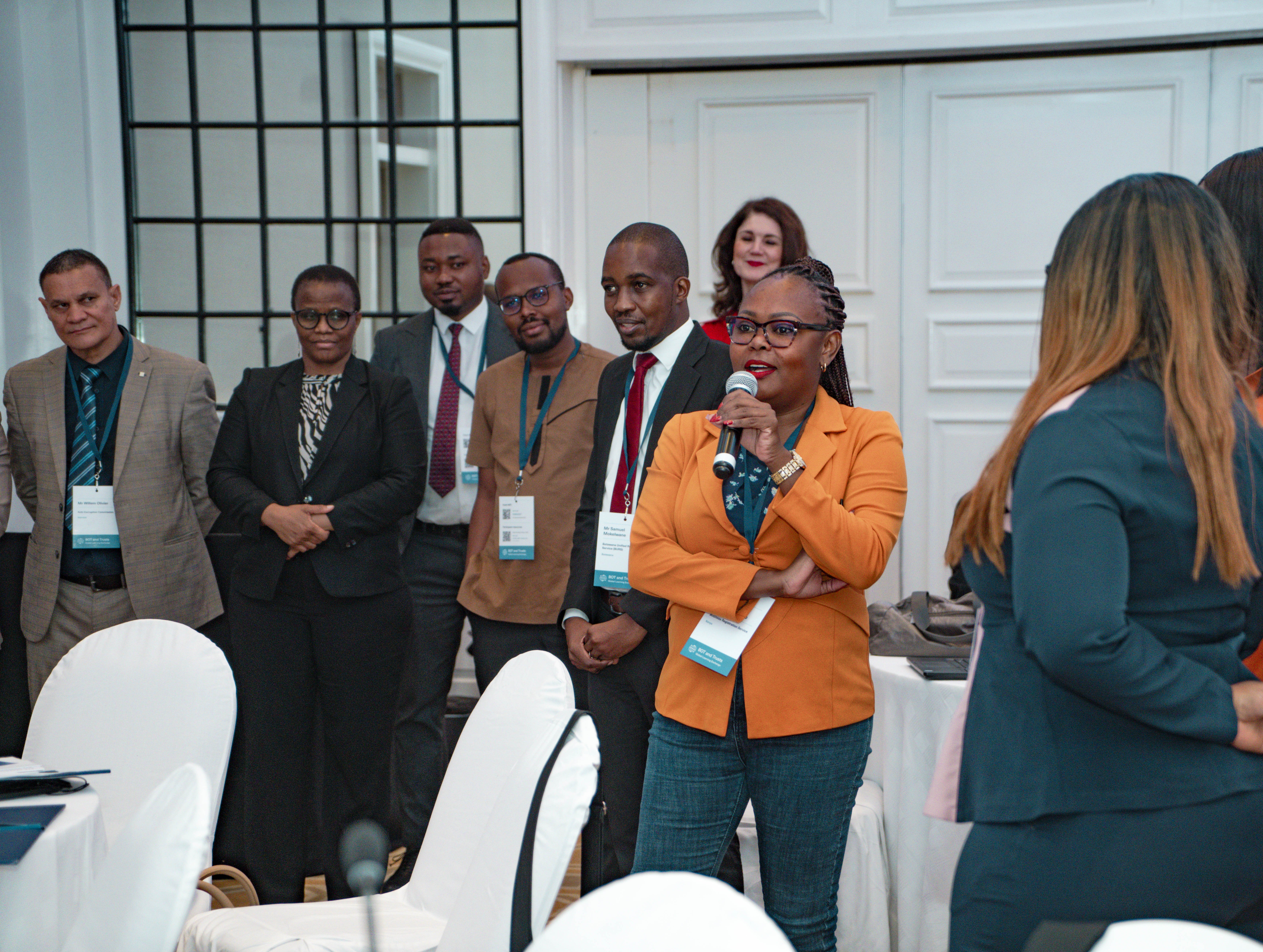From transparency to trust: Open Ownership strategy 2025 to 2030
A fast-evolving context
Figure 1. Global progress implementing beneficial ownership transparency reforms 2017–2024

Global progress on BOT has increased significantly over the past decade. More than 100 countries now have a live beneficial ownership register, predominantly covering companies. International policy frameworks for the effective sharing of beneficial ownership data across borders are also being developed globally.
In the coming years, the world is set to collect and share more beneficial ownership information than ever before, and technological capacity to analyse and use this data, including through AI-driven techniques, is accelerating rapidly. Momentum for BOT reform and the use of data is growing, but key challenges – such as usability, sustainability, institutionalisation, and in practice access to usable beneficial ownership data – will persist without structured interventions at both national and international levels.
Since its inception in 2016, OO has laid the foundation for beneficial ownership information to be gathered, shared, and used at scale (see Figure 1). There is now a high demand for good digital delivery on BOT and for this to translate into measurable impacts on corruption and resource mobilisation. This strategy sets out how OO will capitalise on the progress made to date and work towards mainstreaming BOT to deliver concrete outcomes in public financial management, including revenue mobilisation and the fight against corruption and financial crime.
Despite encouraging global progress on BOT, the actors supporting BOT face some significant challenges. These include significant government changes in many of the countries in which OO is engaged; impacts of reduced official development assistance and economic headwinds; and a reappraisal of multilateralism as the primary channel for international governance. While opportunities exist within these changes, it is unclear what the long-term consequences will be, and we anticipate several challenges to persist during the coming years:
- Local and international stakeholders are likely to have reduced capacity to partner with actors like OO to advance BOT; this is expected to affect both small organisations (e.g. national CSOs), large international non-governmental organisations, and international institutions.
- Government partners in countries where we work may also be affected. These impacts may occur and persist throughout the five-year strategy period.
- There may be a reshaping of the narratives that have sustained the civil society and government spaces in which we work to date, and a decrease of the strength of international policy drivers for BOT reforms. For example, key actors may deprioritise anti-corruption as a policy goal.
In light of this, OO’s strategy seeks to retain flexibility to adapt to ongoing changes in the external policy and funding environment.

In partnership with UNODC, the Stolen Asset Recovery Initiative, and the Ministry of Justice of Namibia, OO convened a workshop on BOT for trusts in 2024.